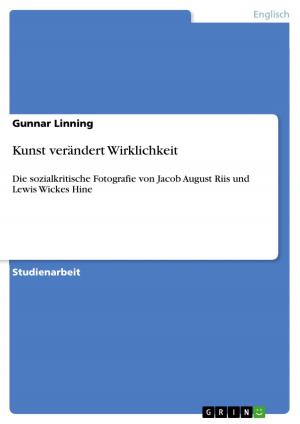Conflicts and mega projects in Latin America. Belo Monte and Urrá dams analysis
Nonfiction, Social & Cultural Studies, Political Science, International, International Relations| Author: | Rubén I. González Tinoco | ISBN: | 9783668112926 |
| Publisher: | GRIN Verlag | Publication: | December 21, 2015 |
| Imprint: | GRIN Verlag | Language: | English |
| Author: | Rubén I. González Tinoco |
| ISBN: | 9783668112926 |
| Publisher: | GRIN Verlag |
| Publication: | December 21, 2015 |
| Imprint: | GRIN Verlag |
| Language: | English |
Master's Thesis from the year 2015 in the subject Politics - International Politics - Region: Middle- and South America, grade: 2.3, University of Erfurt (Willy Brandt School of Public Policy), course: socio-environmental conflict, language: English, abstract: Latin America became a hotspot for construction of infrastructure due the liquidity and financing of the international lending market (Velloso, 2014). The region is building infrastructure for its future - especially hydroelectric dams - due increasing requirements for electricity. According to Feansile (2006), the construction of 'hydroelectric dams represents major investments and major sources of environmental and social impacts' (p.16). The construction of hydroelectric dams 'lead to displacement of large local populations, adverse impacts on downstream water users and ecosystems, changes in control of local resources, and economic dislocations' (Gleick, 1993, p.93). This may imply conflicts between the dam constructors (government, license firms and contractors) and local populations (NGOs, citizens, indigenous and opposition groups). These disagreements could trigger disputes among ethnic or economic groups, between urban and rural populations, and across borders (Gleick, 1993). From all this problematic comes the research questions from this thesis: What are the key factors that influence the emergence of conflicts in the development of the selected hydroelectric mega-projects, Bello Monte in Brazil and Urrá 1 and 2 in Colombia? How managing those factors may lead to better alternatives to intervene socio-environmental conflict?
Master's Thesis from the year 2015 in the subject Politics - International Politics - Region: Middle- and South America, grade: 2.3, University of Erfurt (Willy Brandt School of Public Policy), course: socio-environmental conflict, language: English, abstract: Latin America became a hotspot for construction of infrastructure due the liquidity and financing of the international lending market (Velloso, 2014). The region is building infrastructure for its future - especially hydroelectric dams - due increasing requirements for electricity. According to Feansile (2006), the construction of 'hydroelectric dams represents major investments and major sources of environmental and social impacts' (p.16). The construction of hydroelectric dams 'lead to displacement of large local populations, adverse impacts on downstream water users and ecosystems, changes in control of local resources, and economic dislocations' (Gleick, 1993, p.93). This may imply conflicts between the dam constructors (government, license firms and contractors) and local populations (NGOs, citizens, indigenous and opposition groups). These disagreements could trigger disputes among ethnic or economic groups, between urban and rural populations, and across borders (Gleick, 1993). From all this problematic comes the research questions from this thesis: What are the key factors that influence the emergence of conflicts in the development of the selected hydroelectric mega-projects, Bello Monte in Brazil and Urrá 1 and 2 in Colombia? How managing those factors may lead to better alternatives to intervene socio-environmental conflict?















